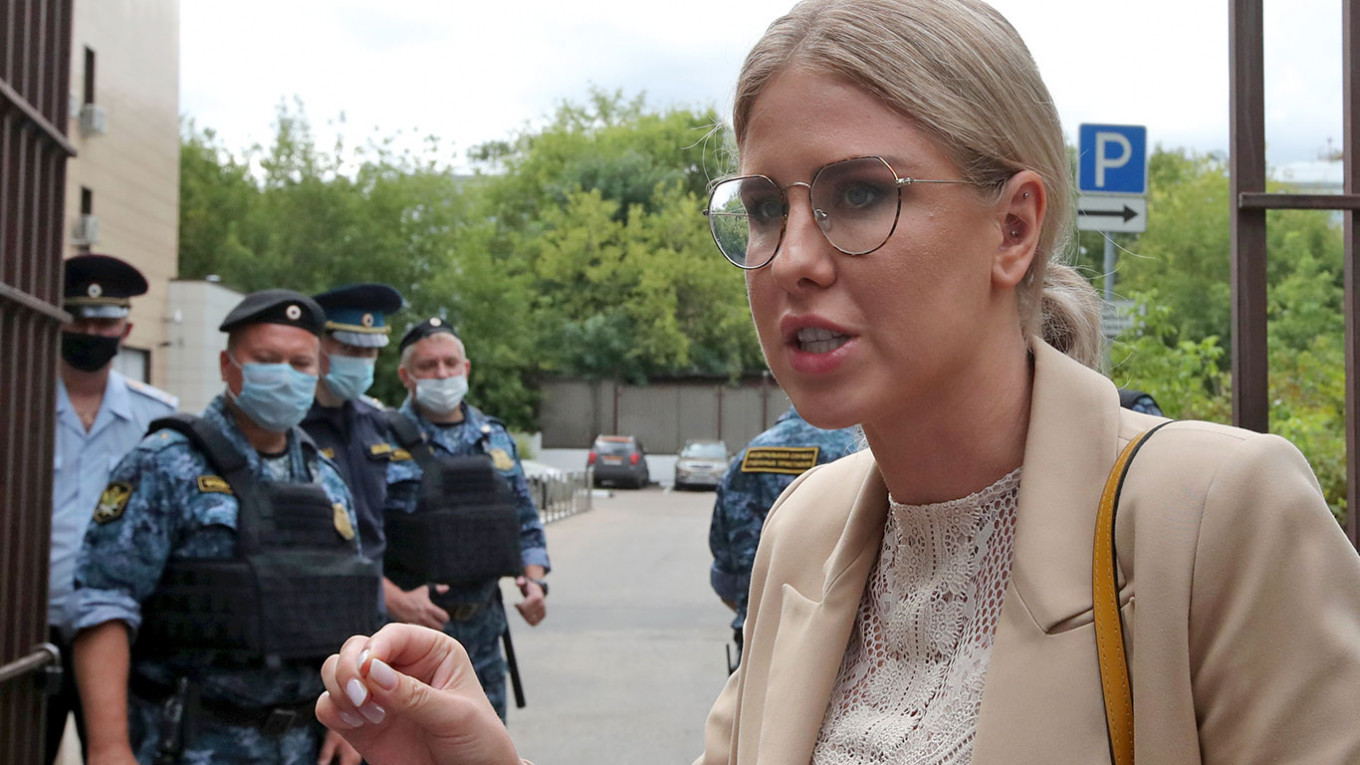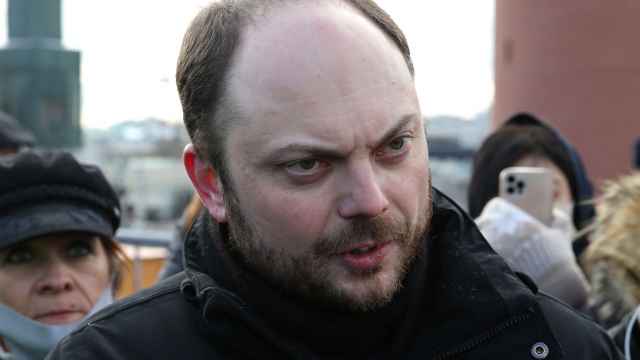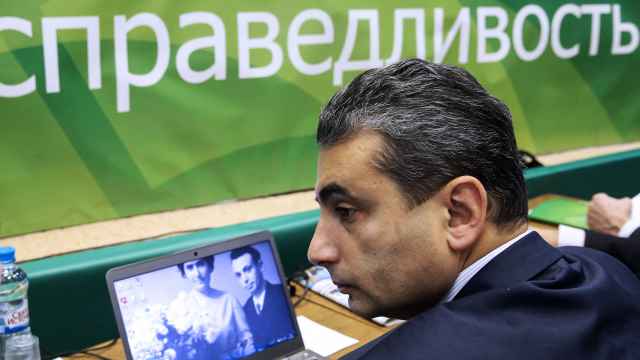Russian opposition figure Lyubov Sobol has been sentenced to 1.5 years of restricted freedom over her role in this January’s mass protests that called for the release of jailed Kremlin critic Alexei Navalny, her lawyer said.
Thousands were detained at the Jan. 23 pro-Navalny protest in Moscow, with widespread reports of police aggression against peaceful demonstrators. Sobol was among several prominent opposition figures to be criminally charged with violating coronavirus restrictions on mass events by calling on supporters to take to the streets.
Moscow’s Preobrazhensky district court on Tuesday found Sobol guilty of “inciting violations of sanitary restrictions” at the unauthorized rally.
The “restricted freedom” sentence bans her from leaving her residence between 10 p.m. and 6 a.m., attending mass events or leaving the Moscow region. She must also check in for an inspection three times a month.
Tuesday’s hearing was held largely behind closed doors, with Sobol herself being removed from the courtroom when she started to film the reading of the sentence.
Prosecutors had requested two years of restricted freedom for Sobol.
Charges of “inciting violations of sanitary restrictions” are punishable by up to two years in prison.
Sobol had been placed under house arrest during the investigation, a sentence that was later lightened to only restrict certain actions due to the fact that she has a young daughter.
Sobol, a top associate of Navalny, rose to prominence as a lawyer for Navalny’s Anti-Corruption Foundation (FBK) and as a leading figure in the Moscow protests of summer 2019.
Russia in June blacklisted FBK as an “extremist” organization” outlawing its activities and putting active members at risk of jail time. A newly passed law also bans members of “extremist” organizations from running for office, forcing Sobol to end her campaign for the State Duma.
Navalny himself is serving a 2.5-year prison sentence for breaking probation terms, a verdict that he says was politically motivated following his nerve-agent poisoning last August.
A Message from The Moscow Times:
Dear readers,
We are facing unprecedented challenges. Russia's Prosecutor General's Office has designated The Moscow Times as an "undesirable" organization, criminalizing our work and putting our staff at risk of prosecution. This follows our earlier unjust labeling as a "foreign agent."
These actions are direct attempts to silence independent journalism in Russia. The authorities claim our work "discredits the decisions of the Russian leadership." We see things differently: we strive to provide accurate, unbiased reporting on Russia.
We, the journalists of The Moscow Times, refuse to be silenced. But to continue our work, we need your help.
Your support, no matter how small, makes a world of difference. If you can, please support us monthly starting from just $2. It's quick to set up, and every contribution makes a significant impact.
By supporting The Moscow Times, you're defending open, independent journalism in the face of repression. Thank you for standing with us.
Remind me later.






